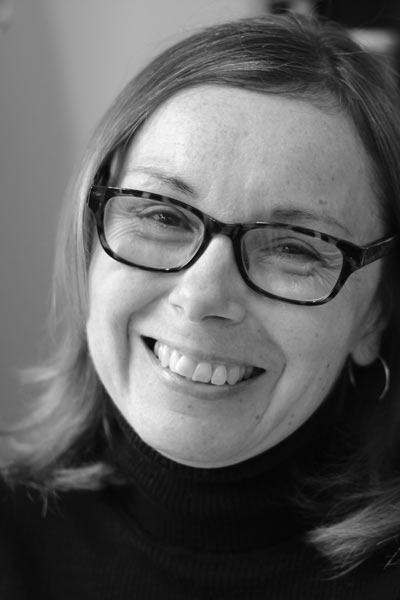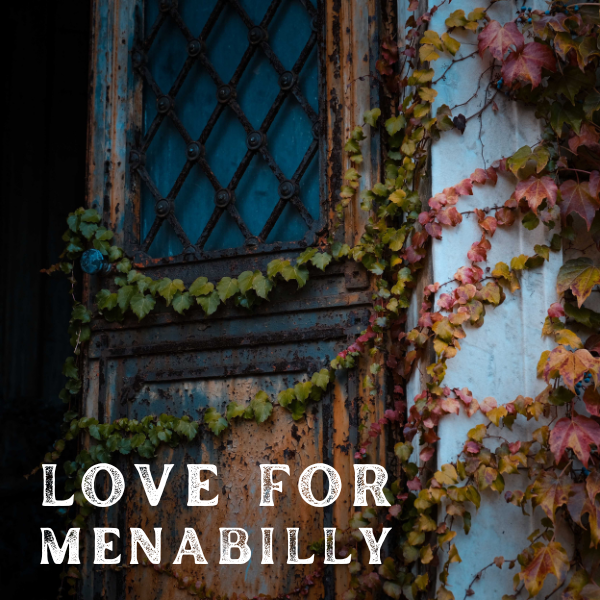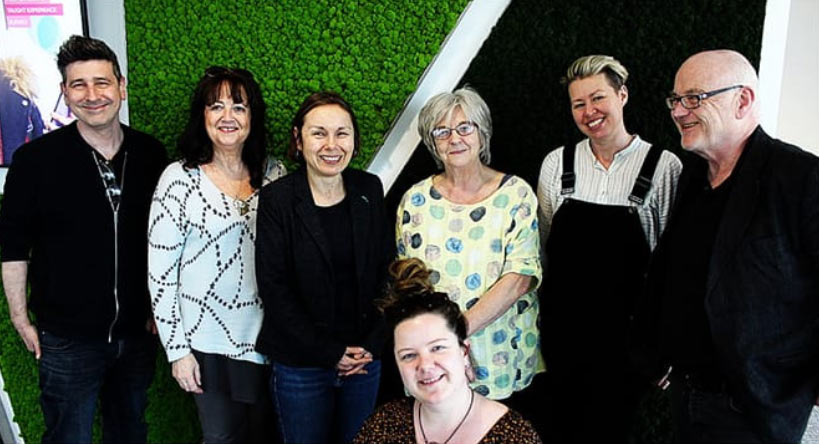
Jo-Ann Challis is a hugely talented newcomer on the audio drama scene. Writer, director and producer of our latest guest production Love for Menabilly, The Last Nuns, and other upcoming audio plays, we caught up with Jo-Ann to learn more.
“the idea that perhaps I could make something myself bubbled away.”
Jo-Ann Challis
How did you get involved in audio drama?
A few years ago I started listening to audio drama regularly, normally while I was doing something else, like ironing, but sometimes I’d end up just listening and getting completely immersed in the story. And where I live there’s a community of creative individuals who are always involved in their own productions, so the idea that perhaps I could make something myself bubbled away.

How did you get started as a writer?
I’d had various false starts at fiction, but felt I was always trying to sound like someone else. After a big gap, and when I had more time available, I set myself the experiment of adapting a novel – I just picked a book off a shelf at random. So I had to learn how to format a screenplay. Bad as it was, I finished it. Then I carried on with my own ideas, taking lots of advice and trying to get better.
“her eyes on the cover seemed to follow me around the shop”
Jo-Ann Challis
What led you to write about Daphne du Maurier and Menabilly?
I found a biography of Daphne in a bargain box in a bookshop. As a rule I’m not interested in writers’ real lives, but her eyes on the cover seemed to follow me around the shop until I went back to pick it up! The fact she spent so much money on a rented house struck a chord with me because one of my relatives was rumoured to have foolishly done something similar. So I wondered what might drive a person to do that, and thought it would be interesting if the property itself had a hand in the matter.

What gave you the idea for your first play, The Last Nuns?
I’d watched one of my favourite films, The Nun’s Story, for the millionth time, and was looking online at information about present-day convents. I found a photo of a group of elderly nuns in a very small community and wondered what the future held for them. Would they be able to look after each other? What would happen when most of them had died?
“if a scene/story/whatever isn’t working, try changing the point of view”
Jo-Ann Challis

In Love for Menabilly, the house itself is a character in the play with a strong internal monologue. What inspired you to give the house a voice?
I was dissatisfied with the story being a sort of audio biopic, but didn’t know how to move forward. Then I remembered a good piece of advice: if a scene/story/whatever isn’t working, try changing the point of view. So I gave the house a point of view. And for an audio play, there was no logistical difficulty with that.
What have you found most challenging in your work so far?
I find directing very stressful because, apart from explaining what I want lines to convey, I don’t feel well equipped to help actors bring out their best performance. I’ve had to do it, because that’s part of producing something yourself with not much of a budget. I’m very grateful to the actors who’ve tolerated my attempts!

What has been your proudest or happiest working achievement so far?
Given my feelings about directing, I did think I’d achieved something when I worked with a couple of actors quite intensively before recording The Last Nuns to help them get to grips with their characters. One of the actors hadn’t done audio before, and on stage used props and movement to anchor her delivery – so working without these was challenging. I thought the benefits of our rehearsal really showed on recording day.
What are your top tips for aspiring writers of radio plays?
Well, I still consider myself to be aspiring! But, on a very practical level, format your scripts as Wireless Theatre recommend: each new scene on a new page, number each page top right, and number each line starting at 1 on each page, script printed single-sided. You’ll be glad you did when it comes to recording. Also, any time that you spend listening to plays, noting the names of producers whose work you’ve enjoyed, making contacts, writing plays on even the most niche topics that mean something to you – none of that time is wasted.
Have you heard any great audio dramas lately? Is there anything you would like to recommend?
There’s a BBC series by Katie Hims called Listening to the Dead. Five plays follow different generations of one family whose members have varying levels of psychic ability. The characters stayed in my head for months after I first listened.
What have you been working on lately?
I’ve got a couple of ideas for a script, but at the moment it’s a case of having a situation not a story! In the meantime, a production company has bought one of my audio scripts so I’m hoping that will be produced and I’ll get a chance to learn from all their audio and drama experience. It would be wonderful not having to organise anything myself!
Where can we enjoy your work?
Love For Menabilly is available on this very website. The Last Nuns can be heard here.
Jo-Ann can be contacted through linkedin
